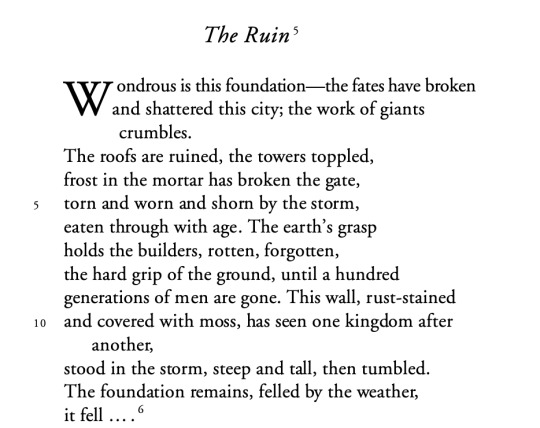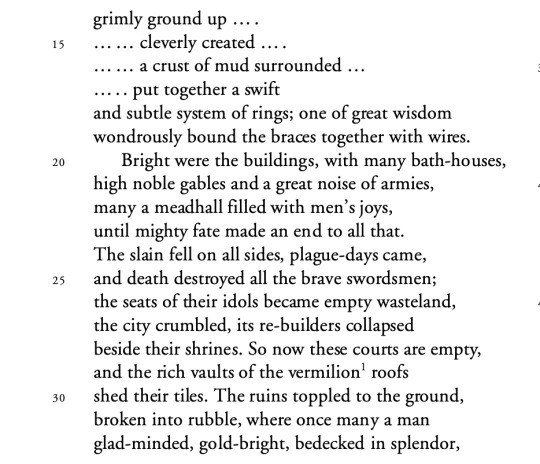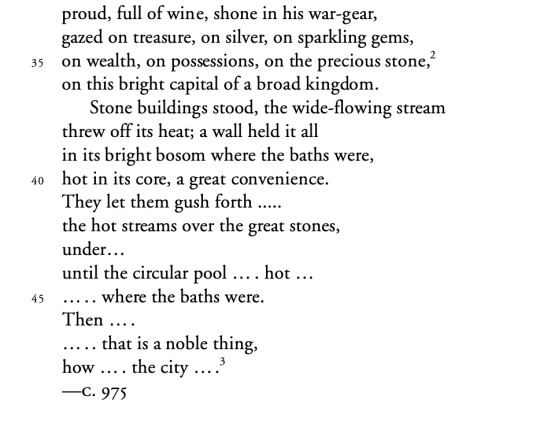#the main detail i remember from the poem is those 'orene' words and how much i liked them
Explore tagged Tumblr posts
Text
*activate special interest mode* I read this poem in an undergrad class and it always makes my head spin to think about the spans of time involved—the fact that the poet describing this 'ancient ruin' is, themself, so far-removed from the present day that their English is incomprehensible to us modern speakers and requires translation.
But speaking of translation, I love this one, because it preserves a rhythm from the original that is usually lost in other translations I've seen.
There's a section of the poem where the original poet uses words that end in 'orene'/'orone' (pronounced something like 'or-uh-nuh') to emphasise the sense of destruction.
Hrofas sind gehrorene, hreorge torras, hrim geat torras berofen, hrim on lime, scearde scurbeorge scorene, gedrorene, ældo undereotone. Eorðgrap hafað waldend wyrhtan forweorone, geleorene, heardgripe hrusan, oþ hund cnea werþeoda gewitan.
And here's a typical translation of that section:
Roofs are fallen, ruinous towers, the frosty gate with frost on cement is ravaged, chipped roofs are torn, fallen, undermined by old age. The grasp of the earth possesses the mighty builders, perished and fallen, the hard grasp of earth, until a hundred generations of people have departed.
There's nothing wrong with this translation—it gets the point across.
But here's what this translator, R.M. Liuzza has done with it:
The roofs are ruined, the towers toppled, frost in the mortar has broken the gate, torn and worn and shorn by the storm, eaten through with age. The earth's grasp holds the builders, rotten, forgotten, the hard grip of the ground, until a hundred generations of men are gone.
And I think that's brilliant! Liuzza preserved those rhymes to great effect, and the 'orn' words they use are even similar to the 'orene' (remember, it's pronounced more like 'or-uh-nuh') sounds used in the original.



The Ruin, Anonymous Old English Poem, trans R.M. Liuzza
#the main detail i remember from the poem is those 'orene' words and how much i liked them#so when i saw this translation with 'torn and worn and shorn' i was like !!!!!!#LOVE this#also just love this poem in general but YEAH#and i can nerd out over old english/middle english any day#i'm by no means an expert I Just Think It's Neat#old english#old english literature#poetry#anglo saxon#medieval poetry#medieval literature#dark ages#literary analysis#sylvie's own nonsense#my addition#translation#literature in translation
1K notes
·
View notes